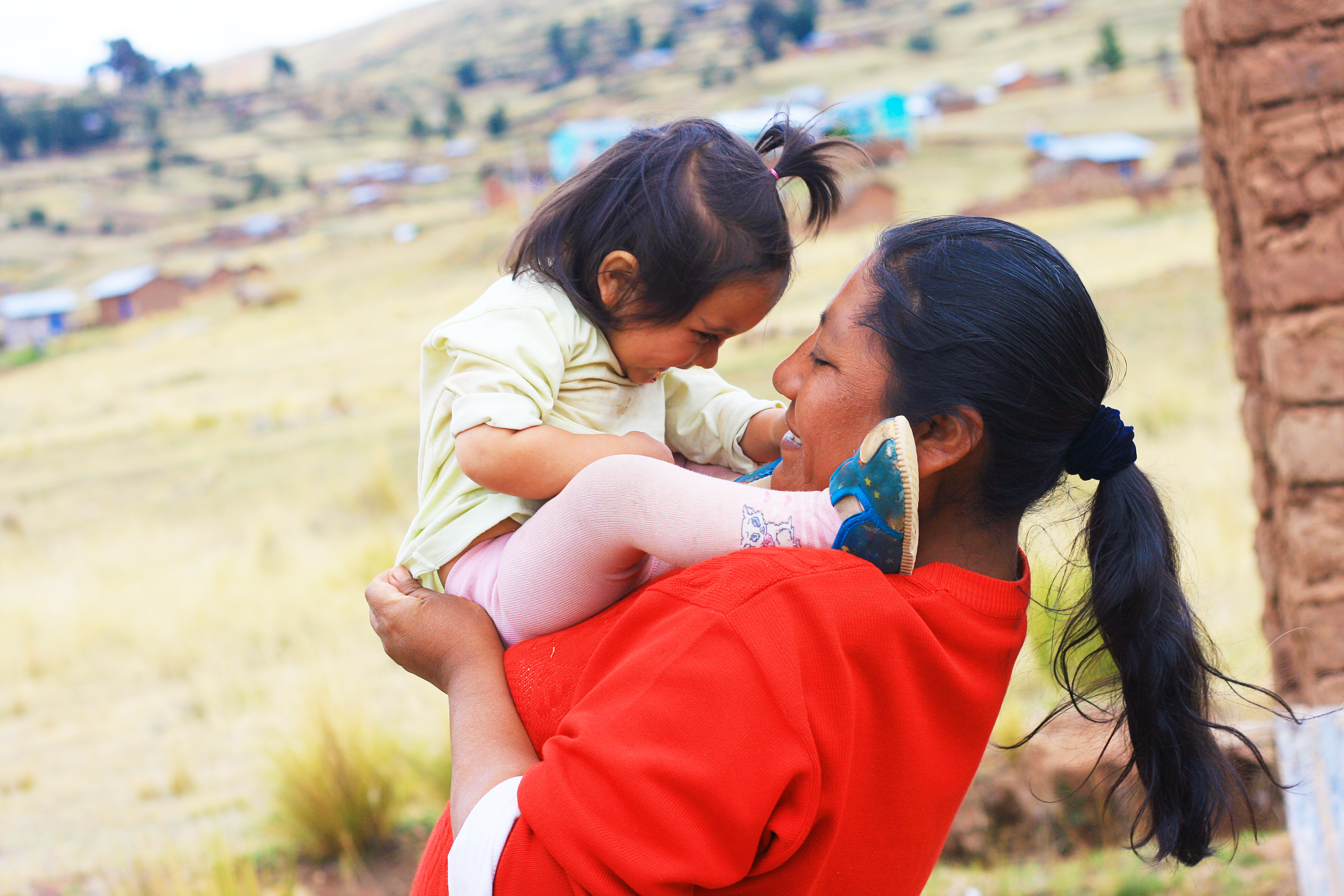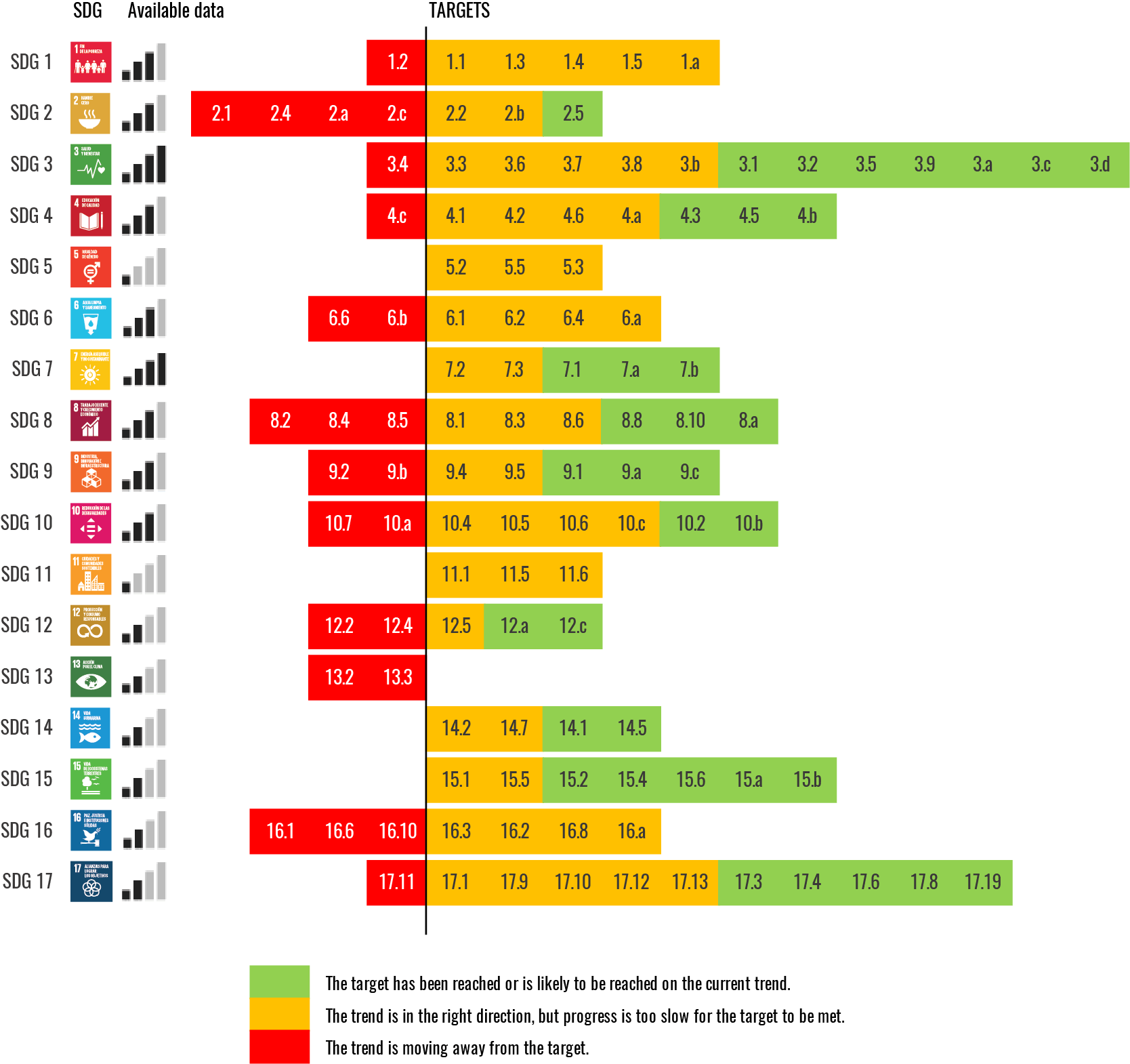The 2030 Agenda: Are Latin America and the Caribbean on Track to Achieve the Sustainable Development Goals by 2030?
Work area(s)
When the 2030 Agenda for Sustainable Development was adopted by all 193 Member States of the United Nations at the Sustainable Development Summit in New York in September 2015 as “a shared blueprint for peace and prosperity for people and the planet, now and into the future”, it presented a historic opportunity for Latin America and the Caribbean. Despite progress, the region needs to step up their efforts.

When the 2030 Agenda for Sustainable Development was adopted by all 193 Member States of the United Nations at the Sustainable Development Summit in New York in September 2015 as “a shared blueprint for peace and prosperity for people and the planet, now and into the future”, it presented a historic opportunity for Latin America and the Caribbean. Despite progress, the region needs to step up their efforts.
With its 17 Sustainable Development Goals (SDGs) at its heart, the global agenda includes high-priority issues for the region, such as the eradication of extreme poverty, the reduction of inequality in all its dimensions, inclusive economic growth with decent work for all, sustainable cities, and the mitigation of climate change, among others.
Only a third of SDG targets are on track to be achieved by 2030
With only seven years left before the deadline to deliver on the Global Goals, we are far away from where we should be. Cascading and interlinked crises are putting the achievement of the SDGs in danger worldwide. Despite signs of progress in some areas, the confluence of crises, dominated by COVID-19, climate change and conflicts, are creating spin-off impacts on food and nutrition, health, education, the environment, as well as peace and security, as pointed out in the United Nations Sustainable Development Goals Report 2022.
The region of Latin America and the Caribbean (LAC) is no exception. Taking the latest results of ECLAC’s regional trend projections for 2030 into account, the region shows a mixed performance: only a third of SDG targets are on track to be achieved by 2030, while for two-thirds, policy actions are needed to achieve the targets, either to accelerate a positive development trend (46% of targets) or to reverse the observed stagnation or setback (22% of targets). The results differ between goals, with SDGs 1 (end poverty), 10 (reduction of inequalities), 11 (sustainable cities and communities), 13 (climate action) and 16 (peace, justice and strong institutions) being in high risk, and SDGs 3 (health and well-being), 7 (affordable and clean energy), 9 (industry, innovation and infrastructure), 12 (responsible production and consumption), 15 (life of terrestrial ecosystems) and 17 (partnerships for the Goals) being in better conditions to be achieved by 2030.
SDG targets by their likelihood to reach the threshold established for 2030 in the LAC region

The commitment of Latin American and Caribbean countries to the 2030 Agenda is uninterrupted
Despite the bleak outlook to deliver on the 17 SDGs by 2030, there is still reason for hope. The commitment and sustained effort of Latin American and Caribbean countries to ensure the follow-up of the 2030 Agenda is uninterrupted. All countries of the region have appropriated the SDGs as a State commitment, in broad cooperation with multiple actors, including civil society, youth, the private sector and academia, in addition to local and parliamentary authorities. They have also made significant progress in integrating the SDGs into their national development plans.
All the countries in the region have institutions to support the implementation of the 2030 Agenda: 18 countries, mainly in the Caribbean, have designated an existing public institution responsible for monitoring (either attached to the presidency, ministry or public agency), while 15 countries have ad hoc mechanisms. Between 2016 and 2022, 31 of the 33 LAC countries reported their progress in ownership, monitoring, and implementation of the 2030 Agenda by submitting at least one Voluntary National Review (VNR) to the High-Level Political Forum on Sustainable Development. The 53 voluntary national reports submitted by the countries in the region constitute a wealth of information, analysis, processes, good practices, and lessons learned on the road to 2030.
To deliver on the promise of the SDGs, the time for cooperation is now
With so little time left to fulfill the vision of the 2030 Agenda, its achievement requires an unprecedented level of collective action. International cooperation and greater commitment from all relevant actors must be urgently scaled up to find lasting solutions.
ECLAC's Community of Practice on Voluntary National Reviews (VNRs) for Latin American and Caribbean (LAC) countries as well as the upcoming sixth meeting of the Forum of the Countries of Latin America and the Caribbean on Sustainable Development to be held at the ECLAC’s Headquarters in Santiago de Chile between 25 and 28 of April 2023 provide an opportunity to promote regional cooperation to accelerate actions for the SDGs and pave the way to the SDG Summit coming up in September 2023.
To deliver on the promise of the SDGs, the time for cooperation is now. Only through integrated, inclusive, and coherent coordination between all actors can we be greater than the sum of our parts. Together we must create an environment in which no one is left behind, and all people can fulfill their true potential, shaping a just and sustainable future for all.
Country(ies)
- Latin America and the Caribbean